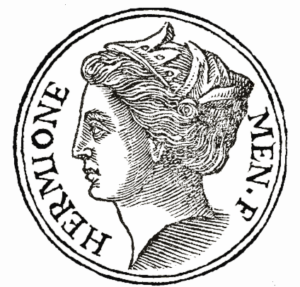To say my mother was “a force of nature” is an understatement! As Hilda Doolittle wrote, she [Helen] is “the admitted first cause of all time and all history.” She was, is, and will always be “the destroyer of worlds,” well at least the world before my birth.
I can’t begin to tell you how inhumanly beautiful she was. The effect the very sight of her had on men and women of the age. “The face that launched a thousand ships.” The hundreds of thousands that died for her sake. A beauty that could thwart the greatest rage.
As a child I felt like an epithet, a mere accessory she wore on the right occasion. Like Daisy’s daughter in “The Great Gatsby.” I was invisible in the glare of her shining beauty, unnoticed by all in their rush to adore her. I felt such comfort beside such light and warmth. I didn’t know better.
She left me behind when I was nine. She took everything else, including my nanny! At which point I became a pawn in the most powerful game of all to be married off for political expediency. The cause of even more strife between my husbands and a deadly legacy for my son and his people.
Mom might have been the admitted first cause of all time and all history. But I will be the end of all legend and all mythology. I am heraldess of “The Bronze Age Collapse of 1177 BC” and the Dark Age that followed. I am Hermione, Princess of Sparta! (William Moulton)
From my literary attempt above you might gather that Hermione was peripheral to major events of the age, like her mother’s nanny Aethra.[1] Hermione was the daughter of Menelaus and Helen of Sparta, abandoned by her mother when she was nine.[2] What happened to her at this point is unclear. Menelaus and his brother Agamemnon spent a couple years organizing the Achaeans, then left for Troy.[3] Her parents returned twenty years later. Homer records that Menelaus betrothed Hermione to Neoptolemus, son of Achilles, at Troy. Sort of like Agamemnon promising one of his three daughters Chrysothemis, and Laodice, and Iphianassa to Neoptolemus’ father.[4]
That should have been the end of that, but various later scholars and Ovid, wrote that Hermione’s grandfather Tyndareus married her off to her cousin Orestes while everyone else wasil still in Troy.
I, unhappy Hermione, address the man, lately my kinsman and spouse; now my kinsman only; for another possesses the name of husband. Pyrrhus, the son of Achilles, impetuous as his sire, forcibly confines me here, contrary to honour and justice. I resisted with all the force which I could exert, that I might not be detained; nor was it in the power of female hands to do more. ‘What are you doing, grandson of Æacus?’ exclaimed I: ‘think not that I am without an avenger: the maid whom you injure has a master of her own.’ But he, more deaf than the raging waves, dragged me by the hair into his hated palace, calling for aid upon the name of Orestes. What could I have suffered more in the ruin of Lacedæmon, had a troop of barbarians led captive the Grecian dames?[5]
Which sort of makes sense, since she was way past marriageable age and probably under Tyndareus’ care because all her uncles were either at Troy or “under the earth.” At time of Menelaus’ return, Orestes was being driven mad by the Erinyes, so Neoptolemus could claim his bride uncontested. Soon enough Neoptolemus died (various myths about that) and Orestes and Hermione were united. Their union resulted in the birth of Tisamenus. He ruled over a large territory until the Heracleides returned to the Peloponnesus,[6] an event that coincided with the so-called Dorian Invasion, the Bronze Age Collapse of 1177 BC and the end of the mythological genealogy tables.[7]
I am reading again M.L. West’s The Hesiodic Catalogue of Women. In case you are wondering about the title, “Hesiod” composed a sequel to the Theogony. It is called The Catalogue of Women.There is no complete text/intact copy of this five volume work by Hesiod. There are many fragments, which West has tried to arrange in what he thought is the correct order.
And she (Helen) bare neat-ankled Hermione in the palace, a child unlooked for. …Now all the gods were divided through strife; for at that very time Zeus who thunders on high was meditating marvellous deeds, even to mingle storm and tempest over the boundless earth, and already he was hastening to make an utter end of the race of mortal men, declaring that he would destroy the lives of the demi-gods, that the children of the gods should not mate with wretched mortals, seeing their fate with their own eyes; but that the blessed gods henceforth even as aforetime should have their living and their habitations apart from men. But on those who were born of immortals and of mankind verily Zeus laid toil and sorrow upon sorrow.[8]
I was reading West’s comments on page 119 of this work:
Menelaus got Helen, and she bore Hermione…The moment Hermione’s birth has been registered, there is an abrupt switch to the gods. They were riven with dissension because of Zeus’ great plan to stir up a war, destroy large numbers of men and remove the sons of the gods to live apart in the paradise conditions they had enjoyed in the beginning.
The fatal Oath of Tyndareus[9] and the abduction of Helen, which would ignite the war, were separated by six-plus years. I always assumed this was because the gods were waiting for Achilles to be old enough to enter the war. But this fragment suggests that Hermione’s birth suddenly triggered Zeus’ plan. Why do you think so?
